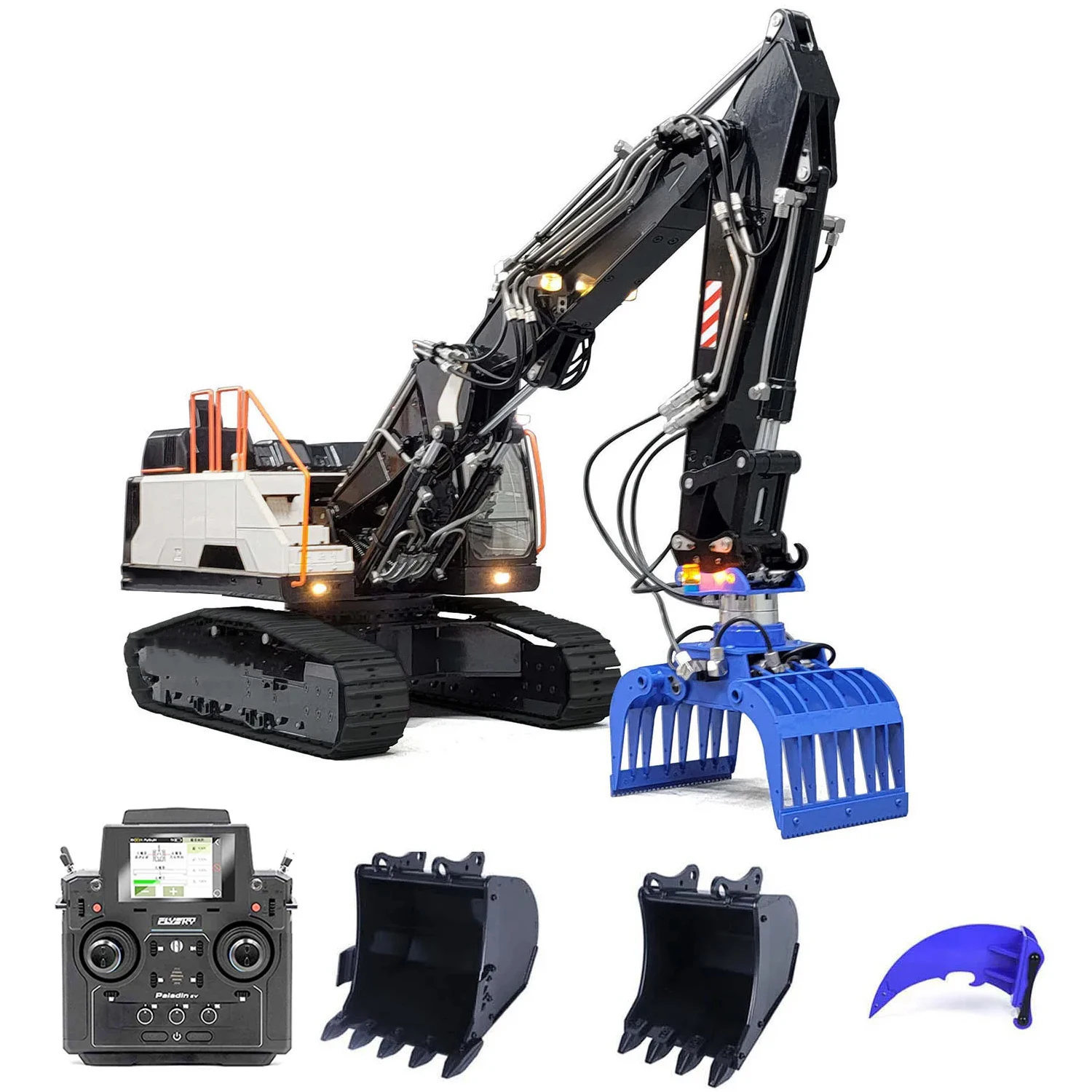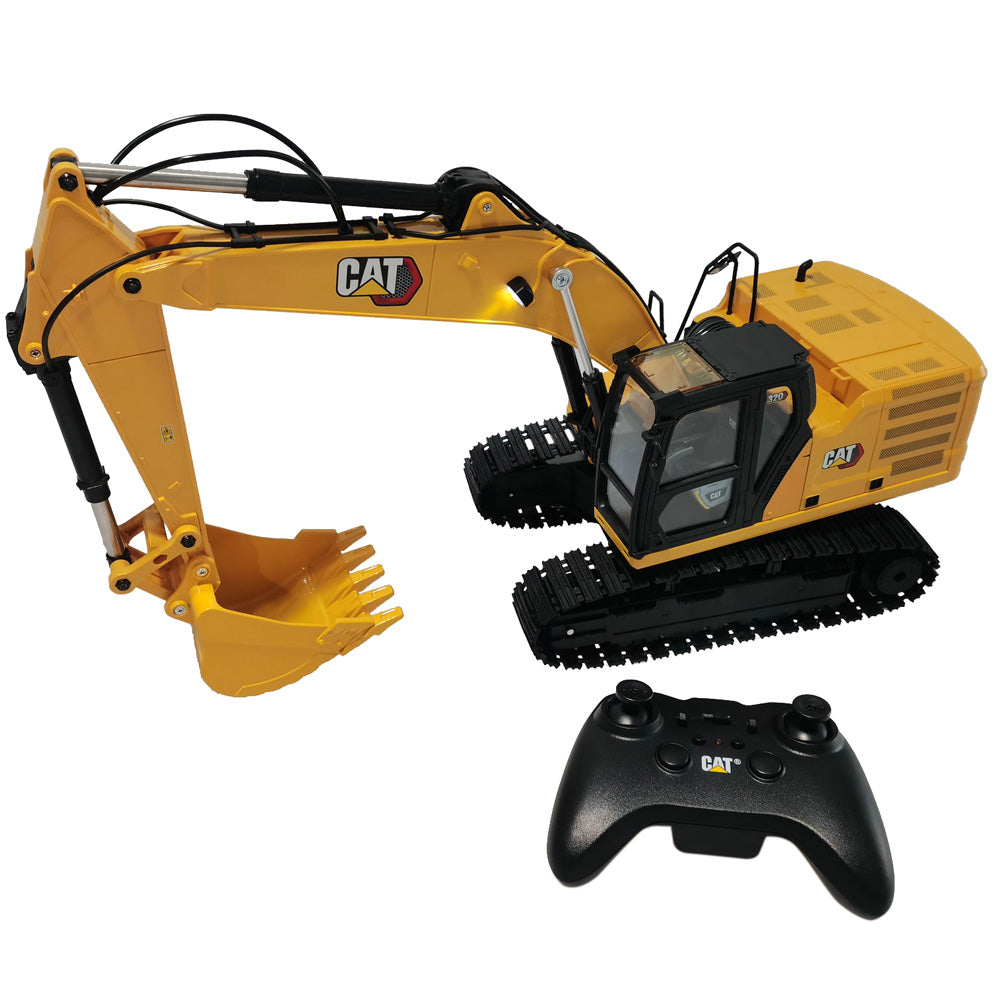Discover the Importance of Excavator in Modern Building And Construction Projects
Excavators are crucial devices in modern building and construction tasks. Their convenience permits them to do a wide variety of jobs, from digging and grading to demolition and website preparation. Advanced attributes, such as hydraulic accessories and general practitioners, improve their abilities and performance on work sites. As the industry advances, the importance of excavators grows even much more. Recognizing their function can disclose insights into the future of building methods. What exists in advance for these devices?
The Convenience of Excavators in Various Projects
Although excavators are typically linked with large-scale construction jobs, their versatility enables them to be used in a variety of applications, from property landscaping to energy maintenance. In metropolitan settings, excavators can navigate tight spaces to dig structures for homes or install drain systems. Their capability to execute fragile jobs makes them suitable for landscape design jobs, where they can excavate for ponds or plant trees. On top of that, excavators play an important duty in utility maintenance, efficiently excavating trenches for pipes or cords without disrupting surrounding locations. In farming applications, they aid in land clearing and dirt preparation. Their adaptability enables them to be furnished with numerous accessories, enhancing their performance across different tasks. This multifaceted nature of excavators not just enhances numerous building procedures but also demonstrates their integral role in contemporary infrastructure growth and maintenance.
Key Functions and Types of Excavators
The discussion on essential attributes and kinds of excavators highlights the necessary features that make these machines indispensable in building. Various excavator kinds, each created for certain jobs, demonstrate their adaptability and effectiveness throughout different applications. rc excavator. Recognizing these categories and functions is essential for enhancing their use in modern building and construction projects
Excavator Types Introduction
Excavators play an essential function in modern building, providing adaptability and efficiency across various tasks. These heavy machinery devices come in several kinds, each tailored for certain applications. The most common kinds include spider excavators, recognized for their security on unequal surface, and wheeled excavators, which provide better flexibility on paved surface areas. Tiny excavators are preferred for small tasks and limited areas, while long-reach excavators are designed for deep digging. Furthermore, there are specific excavators, such as hydraulic excavators, which enhance power and precision. Each type features distinct capacities, making them essential for jobs varying from excavating and grading to demolition and material handling. Understanding these variations permits building and construction specialists to select the best excavator for their project requires.
Trick Features Explained
Understanding the vital functions of excavators improves their efficient application in building tasks. Excavators are identified by their effective hydraulic systems, which offer the needed pressure for digging, training, and moving products. Their expressed arms enable a variety of activity, assisting in exact operations in confined rooms. Additionally, the selection of add-ons, such as containers, grapples, and augers, expands their convenience to meet various job requirements. The dimension and weight of excavators additionally add to their stability and maneuverability on different terrains. Furthermore, advancements in technology have actually brought about the assimilation of general practitioner and automation, boosting accuracy and effectiveness in excavation tasks. These functions jointly place excavators as indispensable devices in contemporary building.
Applications in Building
Changing building sites, excavators play a crucial duty across numerous applications, varying from residential building tasks to massive framework growths. These flexible machines are furnished for jobs such as digging structures, trenching for utilities, and website grading. Different kinds of excavators, including crawler, wheeled, and mini excavators, give certain advantages customized to the job demands. Spider excavators master rough surfaces, while wheeled excavators use wheelchair on smooth surface areas. Tiny excavators are excellent for restricted areas, making them prominent in urban setups. The efficiency and power of excavators considerably accelerate building and construction processes, making certain prompt job conclusion. Their flexibility further enhances their value, enabling construction teams to tackle a diverse variety of challenges successfully.
Enhancing Effectiveness and Productivity on Job Sites
Optimizing performance and productivity on task sites is a vital goal in modern-day construction. Excavators play a crucial function in achieving this goal by streamlining numerous jobs. Their capability to do numerous functions-- such as lifting, grading, and excavating-- minimizes the demand for additional devices, consequently conserving time and resources.Moreover, excavators improve operations by permitting for faster completion of projects. With advanced features like hydraulic accessories and GPS modern technology, they can execute specific procedures that lessen mistakes and remodel. This accuracy not only improves the high quality of job but additionally enhances material use, adding to set you back savings.The convenience of excavators permits them to adapt to various site conditions, guaranteeing that tasks proceed smoothly regardless of challenges. By integrating excavators into building and construction processes, teams can considerably enhance their total productivity, leading to prompt job completion and boosted earnings.
Safety And Security Benefits of Using Excavators
Excavators greatly improve security on building and construction sites with boosted operator exposure and minimized hands-on labor risks. By offering drivers with a clear sight of their surroundings, excavators help to stop accidents and injuries. In addition, the machinery decreases the requirement for employees to take part in unsafe hand-operated jobs, further advertising a much safer work environment.
Improved Operator Visibility
Building websites can be disorderly and loaded with prospective hazards, improved driver exposure plays a vital function in making certain safety and security when using excavators. Modern excavators are made with large, unobstructed windows and strategically placed mirrors, permitting drivers to keep a clear view of their surroundings (rc excavator). This improved visibility is vital for finding pedestrians, various other machinery, and different challenges, significantly decreasing the danger of accidents. Additionally, many excavators incorporate sophisticated innovation, such as video cameras and sensors, to provide operators with added viewpoints, even more enhancing awareness. The ability to see even more clearly not just help in effective operation yet additionally promotes a much safer workplace, making it easier for drivers to navigate complicated building sites without jeopardizing safety and security standards
Reduced Manual Work Risks
When hands-on labor is reduced with using excavators, many safety and security benefits arise, considerably enhancing the well-being of construction you can try these out employees. Excavators reduce the physical stress related to heavy lifting and repeated jobs, efficiently lowering the threat of musculoskeletal injuries. By automating procedures such as excavating, grading, and relocating products, they permit workers to keep a much safer distance from potential risks. In addition, excavators are furnished with advanced safety and security features, such as rollover protection systems and improved driver functional designs, which even more secure workers on site. The result is a substantial decrease in office crashes and injuries, bring about increased productivity and morale among building and construction teams. Ultimately, the adoption of excavators contributes to a much safer and a lot more reliable construction setting.
Excavators in Earthmoving and Website Preparation
In contemporary building and construction, a considerable section of earthmoving and website prep work jobs depends on the efficiency and convenience of excavators. These devices are made to deal with different dirt types and surface, making them indispensable for grading, excavating, and trenching activities. Their hydraulic arms can be outfitted with various attachments, such as containers and augers, enabling drivers to tailor their technique based upon particular task requirements.Excavators stand out at moving big volumes of earth swiftly and effectively, which speeds up the general building and construction timeline. They can browse tight rooms and testing sites where conventional equipment may struggle, enhancing performance. In addition, the precision of excavators warranties that site prep work adheres to strict requirements, lessening the risk of errors that can bring about pricey rework.
The Role of Excavators in Demolition Tasks
Excavators play a necessary duty in demolition tasks, as they have the power and agility required to take down structures successfully. Outfitted with different add-ons such as hydraulic breakers, shears, and grapples, these devices can adjust to different demolition demands, whether for tiny structures or large industrial websites. Their convenience allows operators to take on complex tasks while maintaining safety and security and precision.In addition to their demolition capacities, excavators help with particles elimination, ensuring that work websites continue to be well organized and secure. By damaging down frameworks right into manageable pieces, they enable streamlined clearing up and recycling of products, lining up with modern-day sustainability efforts.Moreover, excavators can access limited spaces and browse unequal terrain, making them indispensable in urban demolition projects. In this page general, their durable design and multifunctionality make excavators an essential asset in the demolition phase of building, contributing substantially to job timelines and performance.


Future Patterns in Excavator Technology and Use
As the construction market progresses, innovations in excavator modern technology are positioned to change their usage and efficiency significantly. One substantial fad is the combination of automation and expert system, enabling excavators to operate with very little human treatment. This change will certainly enhance accuracy in tasks such as grading and trenching, reducing human error and boosting productivity.Additionally, the surge of hybrid and electric excavators is forming a much more lasting building environment, decreasing carbon emissions and gas costs. Enhanced telematics systems are additionally emerging, making it possible for real-time tracking of device performance and maintenance demands, which can result in far better functional efficiency and longer tools lifespan.Moreover, improvements in attachment modern technology are broadening the flexibility of excavators, allowing them to do a broader series of tasks. The combination of these patterns shows a future where excavators are smarter, greener, and more adaptable, ultimately improving construction job characteristics.
Often Asked Concerns
How Do Excavators Compare to Other Construction Equipment?
Excavators, identified by their flexibility and power, master digging and earthmoving contrasted to various other machinery. Their capability to perform numerous tasks, consisting of lifting and demolition, makes them important in building and construction projects, enhancing general performance.

What Is the Ordinary Life-span of an Excavator?
The typical lifespan of an excavator usually varies from 7,000 to 10,000 operating hours, depending upon maintenance, use problems, and design. Appropriate treatment can prolong this lifespan, ensuring peak efficiency throughout its functional years.
Exactly How Are Excavators Maintained for Optimum Efficiency?
Excavators require routine upkeep for peak efficiency, consisting of routine assessments, liquid checks, filter substitutes, and timely repair work. Executing a preventive upkeep schedule aids lengthen their life-span and guarantees efficient operation in numerous construction environments.
What Are the Costs Related To Acquiring an excavator vs. leasing?
The costs related to purchasing an excavator versus leasing vary substantially. Renting offers reduced upfront costs yet can collect in time, while purchasing calls for a considerable preliminary investment, but supplies long-lasting savings and asset ownership benefits.
What Training Is Called For to Operate an Excavator?
Running an excavator calls for specialized training, normally consisting of safety and security methods, equipment operation methods, and environmental understanding. Accreditation programs often mandate sensible experience, allowing operators to handle different tasks efficiently while guaranteeing conformity with industry regulations. The most typical types include spider excavators, understood for their security on uneven terrain, and rolled excavators, which provide higher wheelchair on smooth surfaces. Tiny excavators are preferred for limited areas and small projects, while long-reach excavators are made for deep excavating. In addition, there are customized excavators, such as hydraulic excavators, which enhance power and accuracy. Different types of excavators, including spider, wheeled, and mini excavators, supply particular advantages customized to learn this here now the project demands. Crawler excavators excel in harsh terrains, while wheeled excavators offer mobility on paved surfaces.
Comments on “Why the remote control excavator Is Ideal for Tight Spaces in Construction”